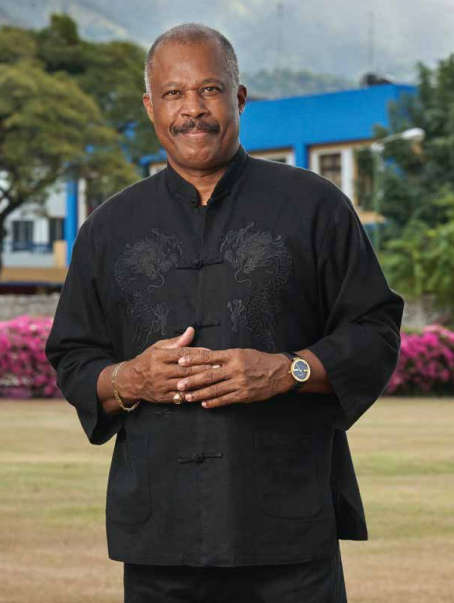EPISODES
Special Symposium Episode:
Dr. Adekeye Adebajo and Lula Adam
BlackTalk host Dr. Andy Knight talks with Dr. Adekeye Adebajo of the University of Pretoria, and Lula Adam of the University of Alberta, discussing their experiences at the Pan-African Symposium held at the University of Alberta in February 2024. All three speakers reflect on the ideas presented in the symposium, especially ideas of intellectual reparations, African scholarship, the publishing gap between Euro-North American and African journals, and practical, constructive paths forward for working to decolonize the University curriculum.
Professor Adekeye Adebajo is a Senior Research Fellow at the University of Pretoria’s (UP) Centre for the Advancement of Scholarship (CAS). Professor Adebajo holds a doctorate from Oxford University in England, and served with United Nations (UN) missions in South Africa, Western Sahara, and Iraq.
Lula Adam is the Student Equity, Diversity, and Inclusion Co-Ordinator with the Dean of Students Office at the University of Alberta, and the host of the upcoming podcast “You, Me, and Us: Equity and Belonging”
We talk about:
Pan-Africanism
Intellectual Reparations
African Scholarship
Decolonizing the University curriculum
Keywords: Black Studies, African studies, Decolonization, Reparations

Special Episode:
Brandon Wint and Dr. Andy Knight
BlackTalk producer Nicolás Arnáez chats with Dr. Andy Knight, creator and usual host of the BlackTalk podcast, and with multidisciplinary storyteller Brandon Wint, about the new Black Studies microcourse they have developed, “Black Canadians: History, Presence, and Anti-Racist Futures”, soon to be available for the public to attend through Coursera.
More course information will be found at the end of the month here: https://www.ualberta.ca/admissions-programs/online-courses/black-canadians-history-presence-and-anti-racist-futures.html
Brandon Wint is an Ontario born poet and spoken word artist who uses poetry to attend to the joy and devastation and inequity associated with this era of human and ecological history. Increasingly, his work on the page and in performance casts a tender but robust attention toward the movements and impacts of colonial, capitalist logic, and how they might be undone. In this way, Brandon Wint is devoted to a poetics of world making, world altering and world breaking. For Brandon, the written and spoken word is a tool for examining and enacting his sense of justice, and imagining less violence futures for himself and the world he has inherited.
W. Andy Knight is Professor of International Relations in the Political Science Department, University of Alberta, and past Chair of the Department. He is Provost Fellow for Black Leadership and Excellence. He is the former Director of the Institute of International Relations (IIR), The University of the West Indies (UWI), Trinidad & Tobago, and co-founder and the former head of the Diplomatic Academy of the Caribbean (DAOC). Professor Knight serves as Co-editor in Chief of both African Security journal and International Journal — two globally prestigious peer-reviewed academic publications. During his secondment in the Caribbean, Knight established the Caribbean Journal of International Relations and Diplomacy and he was co-editor of a highly regarded and award-winning journal — Global Governance from 2000 to 2005.
We talk about:
Black Canadian History
The history of Black Studies
The joys, troubles, hopes, and dreams involved in creating an online Black Canadian History course for the public
Decolonizing the university
Keywords: Black Studies, Black Canadian History, Decolonization


Episode 18:
Dr. Abi Williams
Dr. Abi Williams is a scholar and international affairs practitioner who has held leadership positions in academia, think tanks, and the United Nations. He is Professor of the Practice of International Politics at the Fletcher School of Law and Diplomacy, and the Tisch College of Civic Life at Tufts University. He has also served as Director of the Institute for Global Leadership at Tufts University and President of The Hague Institute for Global Justice. Prior to these appointments, Dr. Williams served at the United States Institute of Peace (USIP) first as Vice President of the Center for Conflict Analysis and Prevention, and later as Senior Vice President of the Center for Conflict Management. He led USIP’s work on prevention and in major conflict zones, including Afghanistan, Iran, Iraq, and Libya.
From 2001 to 2007, Dr. Williams served as Director of Strategic Planning for UN Secretaries-General Kofi Annan and Ban Ki-Moon. As an academic, he has served as Associate Dean of the Africa Center for Strategic Studies at the National Defense University in Washington, D.C., and held faculty appointments at the Walsh School of Foreign Service at Georgetown University and the University of Rochester. He was Chair of the Academic Council on the United Nations System (ACUNS), and a member of the UN Secretary-General’s Advisory Board on Disarmament Matters, the World Economic Forum’s Global Agenda Council on Justice, the U.S.-Netherlands Fulbright Commission, the Lester Pearson College UWC Board of Trustees, and the International Board of Directors of the United World Colleges. He is currently a professor of international politics at Tisch College, Tufts University.
In this episode, Dr. Williams speaks to the role of race in international justice institutions, unpacks personal lessons learned from his extensive career as diplomat and academic practitioner, and explains his role as a mentor and community builder, among other topics.
We talk about:
International politics and diplomacy
Working at the United Nations
International human rights and racial equality
Conflict prevention and mitigation
Teaching, mentorship, education, and facing challenges in the global community
Keywords: International studies, International Justice, Education, United Nations, Diplomacy

Episode 17:
Ambassador Curtis Ward
Ambassador Curtis Ward is an Attorney-at-Law and International Consultant, and former Ambassador and Deputy Permanent Representative of Jamaica to the United Nations with Special Responsibility for Security Council Affairs, serving on the UN Security Council from 2000 to 2001. He has extensive knowledge and experience in national and international legal and policy frameworks for effective implementation of UN and other international anti-terrorism mandates, including countering and preventing violent extremism.
Ambassador Ward traveled to over 30 countries representing the UN Counter-Terrorism Committee for meetings and discussions with government leaders and high-level officials, on counter-terrorism capacity building and related issues; and has provided advisory services to the UN, regional organizations, governments, and NGOs. He has participated as a keynote speaker at various forums, and has lectured globally on a number of security and related issues.
Ambassador Ward holds a Master of Laws from Georgetown University, a Juris Doctor from Howard University, and a Bachelor of Arts (B.A.) (Economics and Political Science) from Howard as well. As an academic, he is also an Adjunct Professor in the Homeland Security Graduate Program at the University of the District of Columbia (since 2012); and is a former Adjunct Professorial Lecturer at George Washington University – Elliott School of International Affairs (2010-14). He has given a series of lectures at the National Defense University; at the NATO School (SHAPE), Oberammergau, Germany; the Kofi Anan International Peacekeeping Centre, Accra, Ghana; and lectures on WMDs at the Caribbean Maritime University, Kingston, Jamaica.
In this episode, Amb. Ward discusses his upbringing in Jamaica and his influences, his thoughts on colonial reparations and justice in the African continent and the Caribbean, and building democracies in post-colonial societies, among other topics.
We talk about:
The differing experiences of race in Jamaica and in the United States
Colonial reparations in the form of sociopolitical structural development
Economic Pan-Africanism
Equitable access to justice and education
The necessity of building democratic institutions from within local contexts
Keywords: Black history, Caribbean Studies, Pan-Africanism, Postcolonialism, Democracy, Education
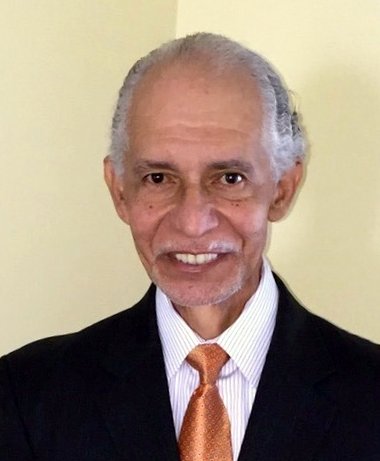
Episode 16:
Dr. Selwyn Cudjoe
Selwyn R. Cudjoe is currently a Professor of Africana Studies at Wellesley College. He teaches courses on the African American literary tradition, African literature, black women writers, and Caribbean literature. A graduate of Fordham University where he received both a B.A. in English and an M.A. in American Literature, Professor Cudjoe also earned a Ph.D. in American Literature from Cornell University. Prior to joining the Wellesley faculty in 1986, he taught at Ithaca College and Cornell, Harvard, Brandeis, Fordham, and Ohio universities. He has been a lecturer at Auburn (N.Y.) State Prison and taught at Bedford-Stuyvesant (N.Y.) Youth-In-Action. Professor Cudjoe is the author and editor of several books, and has produced several documentaries. He has written for the New York Times; The Washington Post; Boston Globe; Harvard Educational Review; International Herald Tribune; New Left Review; Baltimore Sun; the Amsterdam News; Trinidad Guardian; and Trinidad Express. As president of NAEAP, Prof Cudjoe significantly raised the level of consciousness and activism of peoples of African descent living in the Caribbean island of Trinidad & Tobago.
In this episode, Dr. Cudjoe addresses the importance of knowing our literary history, building solidarity between Black American theorists and Pan African theorists, the activist legacies of Pan-African leaders, and the role of struggle and resistance in Black literature, among other topics.
We talk about:
Black intellectualism and literature
The importance of recognizing Black contributions to world history
The importance of incorporating women’s voices in Black studies
Decolonial projects as activism
Keywords: Black literature, Black history, Caribbean Studies, Pan-Africanism, decolonization
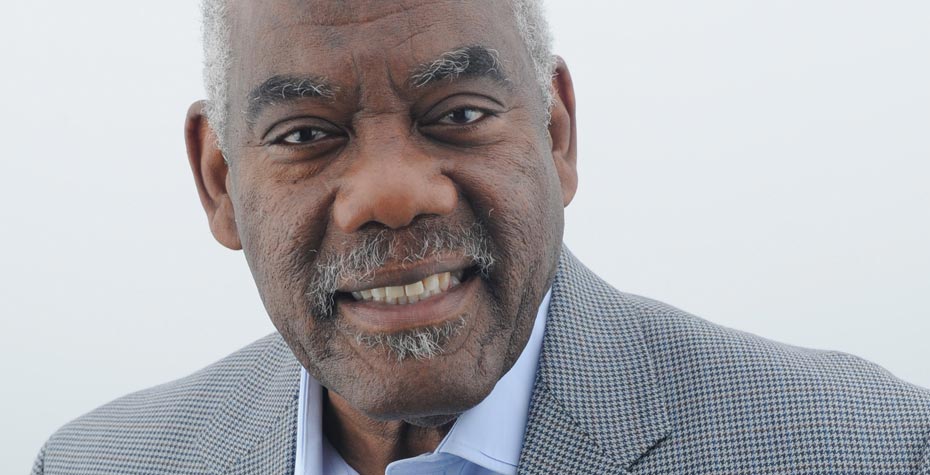
Episode 15:
Dr. Rhoda Reddock
Rhoda Reddock is a sociologist and development studies scholar with expertise in a range of areas including feminist and gender studies, and critical race and ethnic studies. With an academic career spanning many years she is a former deputy campus principal of The University of the West Indies, St. Augustine campus, and head of the Centre (now Institute) for Gender and Development Studies and lecturer in sociology. Among her many published works, she has written 8 books and over seventy peer-reviewed articles and book chapters.
As an activist in the Caribbean Women’s movement, Dr. Reddock was a founding member and first chair of the Caribbean Association for Feminist Research and Action (CAFRA). Her advocacy positioned her as a pioneer of Gender and Development Studies programmes, and she continues to champion the inclusion of women and gender studies in the field. She was recently elected to the Executive Committee of the International Sociological Association, and is the first Caribbean person elected to that role. Dr. Reddock has also served on the Council and advisory committee of the Caribbean Studies Association.
In this episode, Dr. Reddock speaks to what it means to practice decolonial feminism and decolonize our academic institutions, defines pan-African feminism, points listeners to the wisdom of African and Caribbean women thought-leaders, and examines the future of the Gender and Development studies field.
We talk about:
What it means to practice decolonial feminism
Ideas of Pan-African feminism
African and Caribbean women thought-leaders
The future of the Gender and Development Studies field
Decolonizing academic institutions
Keywords: Pan-Africanism, feminism, Gender Studies, Development Studies, African Studies, Caribbean Studies, decolonization
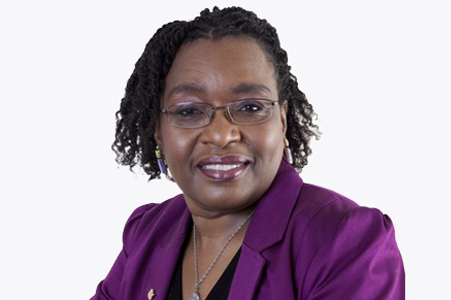
Episode 14:
Dr. Gina Awoko Higgenbottom
Prof Gina Awoko Higginbottom was appointed in 2015 as the Mary Seacole Professor of Ethnicity and Community Health at the University of Nottingham – the first nurse of Black and Minority Ethnic origin (BME) to hold a professorial role in a Russell Group university in England and is now Emeritus Professor. Dr. Higginbottom is formerly a Canada Research Chair in Ethnicity and Health (now renewed) for 8 years at the University Alberta, Canada. She is also the first women of colour to hold a Canada Research Chair, awarded in 2007. She holds a substantial track record of publication and grant acquisition, and Sage research textbook.
Her research focuses on ethnic minority populations and immigrant health, including social exclusion and equity in healthcare and ethno-cultural diversity in care giving. Her experience as a midwife and health visitor has further informed her studies of international migration and maternity, including parenting issues, early parenthood and postnatal depression in different ethnic minority groups, and experiences of diverse ethnocultural groups in accessing and navigating maternal healthcare services. Gina is a member of the UK NHS Race and Health Observatory’s academic reference group and Maternity Action Group. Is Vice President of the Health Visitors Association and a member of the NIHR Research Professor Selection Committee.
We talk about:
Her upbringing in the UK as a child in a mixed-race household with an immigrant parent
The role of race in the healthcare system
The importance of culturally congruent healthcare
Black women’s maternal and neonatal health
The importance of health justice for migrant and ethnic minority communities
Decolonizing healthcare, the medical field, and the health curriculum
Keywords: Culturally congruent healthcare, health justice, migrant communities, maternal health, decolonization
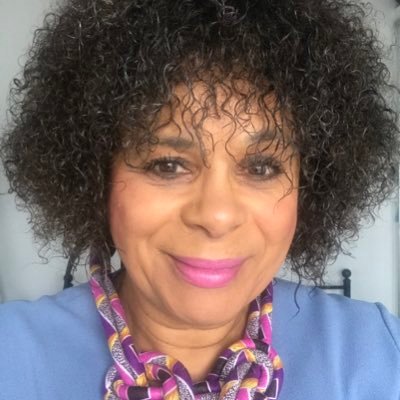
Episode 13:
Dr. Rinaldo Walcott
Dr. Walcott is Professor and Chair in the Department of Africana and American Studies at the University of Buffalo; there he is also the Carl V. Granger Chair in Africana and American Studies. Rinaldo’s research focuses on the cultural expression of Black life with an interest in the transnational, diasporic and the national crosscurrents of Black creativities. Rinaldo is the author of a number of single-authored, co-authored, and co-edited books. His more recent work is The Long Emancipation: Moving Toward Black Freedom (Duke, 2021) and On Property: Policing, Prisons, and the Call for Abolition (Biblioasis, 2021) which was short-listed for the Toronto Book Award in 2021. Currently, Rinaldo is working on two monographs, one on freedom and the sea, and another on Black queer expressive culture. A third work seeks to grapple with the possibilities of achieving utopia from the grips of the catastrophe that threatens to consume all of planetary life. Rinaldo was born in Barbados. He divides his time between the city of Buffalo and the city of Toronto.
We talk about:
His upbringing in Barbados and immigration journey to Canada.
The importance of tracing Canadian Black history and critically thinking about “Canadian blackness” in his work “Black Like Who: Writing Black Canada.”
The role of Black Studies as a community service learning initiative and the value of Pan-African philosophies in the Black Studies field.
The importance of defining the terms “diaspora” and “multiculturalism” in the Black Studies (and cultural) lexicon.
Situating the reparations debate in a Black Canadian/North American context.
His upcoming project “Utopia,” and his recent project “The Long Emancipation: Towards Black Freedom.”
What it means to decolonize a curriculum, campus, and country, accompanied by a critical analysis of popular Equity, Diversity, and Inclusion initiatives within the academy.
Keywords: decolonization, diaspora, emancipation, migration, academia, culture, pan-Africanism, multiculturalism
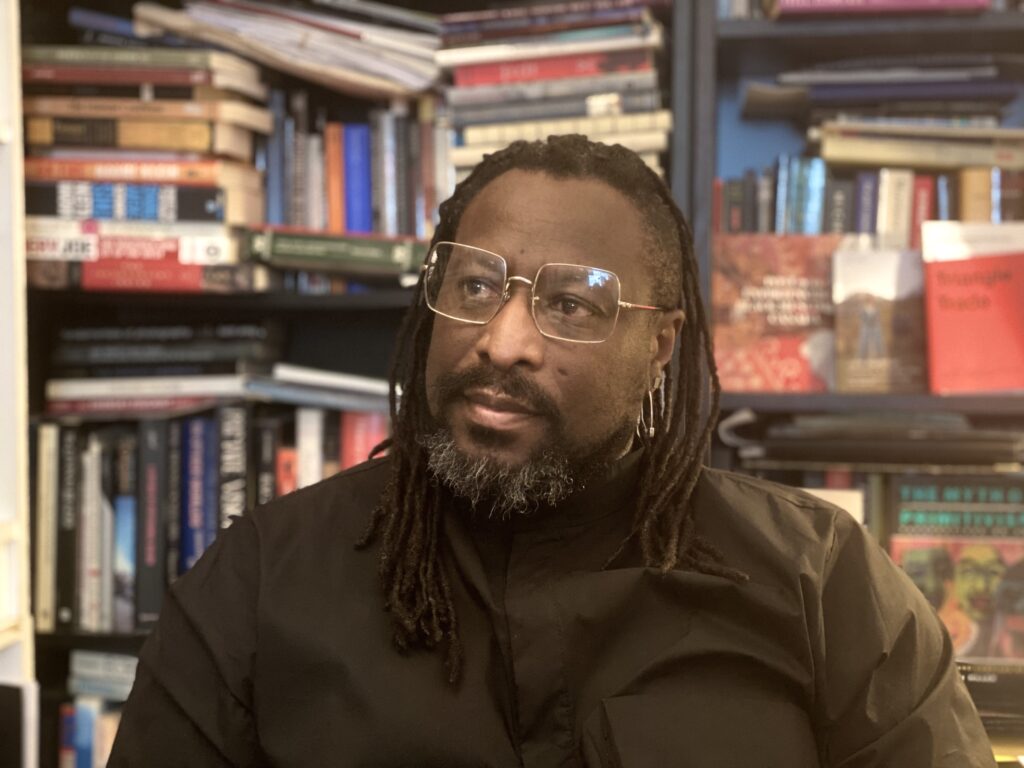
Episode 12:
Hon. Kojo Yankah
The Honorable Kojo Yankah has had a career that spans the world of journalism, government, and education. His work as an editor at Ghana’s most widely circulated newspaper, the Daily Graphic, led to his appointment as the Director of the Ghana Institute of Journalism. In the 1992 Ghanaian parliamentary election, he won the seat for Agona East Constituency, and during the second term of the Rawlings government, he acted as Central Regional Minister, Ashanti Regional Minister, and Minister of State. In 2001, he established the African University College of Communications, and most recently, he founded the Pan African Heritage Museum, which is a multi-million dollar, state-of-the-art repository dedicated to showcasing the history, culture, and achievements of the Pan African World as presented by Africans. He currently serves as Executive Chairman of this project.
We talk about:
Growing up in Ghana in the 1960s as part of the young pioneer movement, the desire to study Ghanaian history, not just colonial work, and how this movement was banned.
His early career in teaching, his move into journalism, working as a radio and television broadcaster, and eventually becoming editor of Ghana’s largest newspaper the Daily Graphic.
Tying together teaching and journalism at the Ghana Institute of Journalism.
Working with Jerry Rawlings, Ghana’s first President, as part of his government, and the history leading up to Rawling’s leadership.
Pan-Africanism and why it’s so important, thoughts on a united Africa.
His latest project, The Pan-African Heritage Museum, why it’s important for Africans to tell our own history. How both digital and physical sites are important to provide access and connection.
“In terms of Pan-Africanism…I’m looking at a united family of people of African descent…knowing about themselves…let’s create a site where we can all go to see ourselves….Africa’s story does not start with slavery – it’s an insult to our dignity.” – Hon. Kojo Yankah
Keywords: museum, digital museum, pan-African, Pan African Heritage Museum, culture, Ghana, journalism, politics.
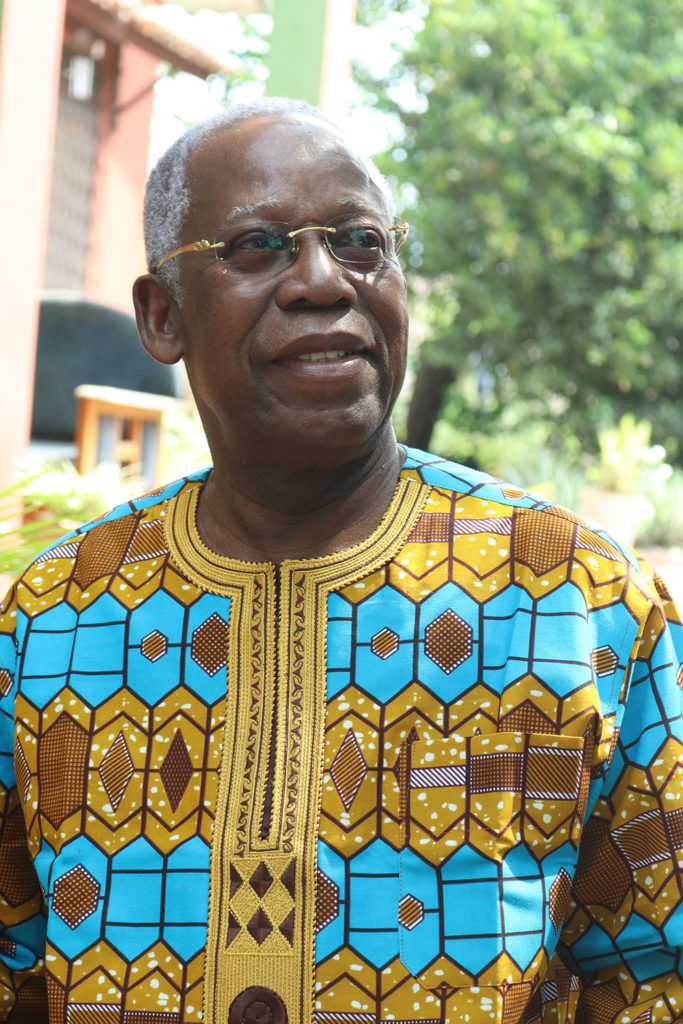
Episode 11:
Dr. Clinton Hutton
Dr. Clinton Hutton is a professor, author, researcher, and artist. Through his research, he has made many significant contributions to the areas of Afro-Caribbean thought, Africana political philosophy, Caribbean political philosophy, and African-Caribbean spirituality, including Rastafari. Through his writing, he has tackled salient topics such as the Haitian Revolution and the Morant Bay Rebellion. He received the UWI Principal’s Research Award in 2012 and 2016 for Best Research Publication, and Most Outstanding Researcher, and he was awarded the Caribbean Hall of Fame Award for Excellence in recognition of his outstanding contributions in the field of visual arts. Dr. Hutton currently serves as Professor of Caribbean Political Philosophy, Culture & Aesthetics at the University of the West Indies.
We talk about:
Inheriting his storytelling abilities from his father, being exposed to a wealth of world history at a very young age and how this became his pathway into academia.
How music informed daily life in the African diaspora, his fascination with musical instruments, artists, music as philosophy and his experiences of the early days of the recording industry in Jamaica.
The important role of Reggae in articulating freedom, justice, identity and political expression, speaking to the anti-colonial struggle.
The impact of Bob Marley, Peter Tosh, and Jimmy Cliff, connections to the MPLA and how even album artwork connected to the movement
Historical connections between Rastafari and African liberation, Garveyites, Hailee Salassie and the Congolese people and Jamaica’s sometimes tense relationship with the movement.
How he was motivated by a “history of harsh truth and lies” to reshape narratives of knowledge that contain racism “hidden in plain sight,” and how this drives his work in education to help all people to change their thinking.
“Teaching about Black history is not for Black people alone.” Dr. Clinton Hutton
Keywords: Reggae, Bob Marley, Peter Tosh, Jimmy Cliff, Rastafari, Afro-Caribbean, colonialism.
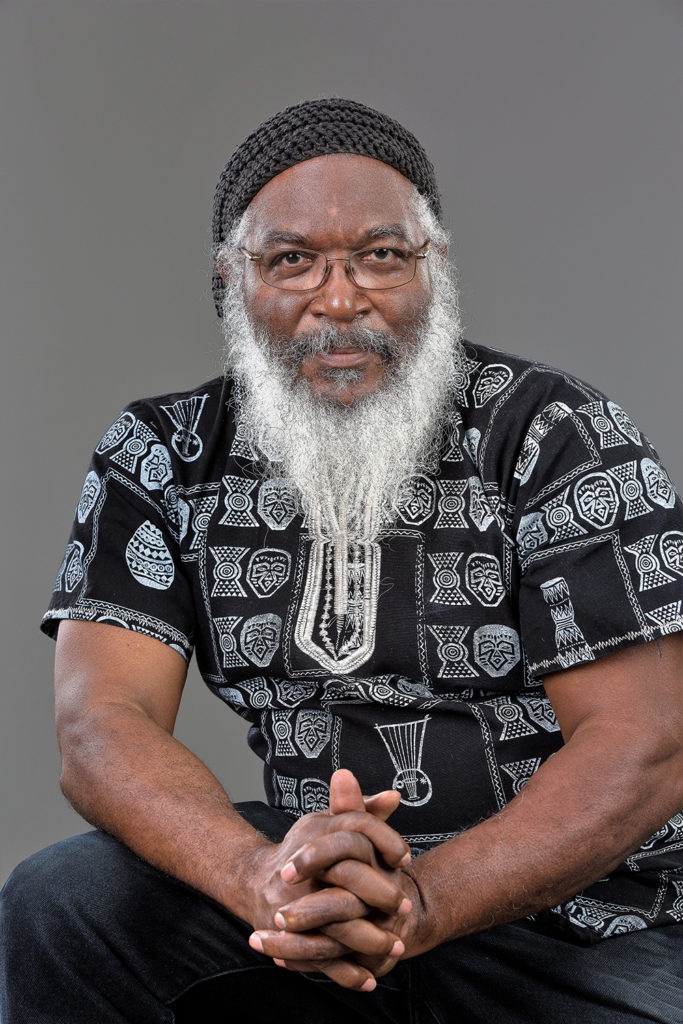
BlackTalk Podcast · Episode 11 – Clinton Hutton
Episode 10:
Dr. Afua Cooper
Dr. Afua Cooper is a multi-award-winning speaker, scholar, historian, author, poet, performer, and cultural commentator for equity, diversity, and inclusion strategies within organizations worldwide. She was presented with the Nova Scotia Human Rights Award in 2015 from the Nova Scotia Human Rights Commission, she served as Halifax’s seventh Poet Laureate, and she won the Portia White Prize, Nova Scotia’s highest award for artistic excellence. She currently serves as a full professor at Dalhousie University’s Department of Sociology and Social Anthropology.
We talk about:
Growing up in Jamaica, the culture shock of transitioning to life in Toronto in the 1980s, and the importance of finding her community in diverse Black spaces.
Early influences of 1970s Reggae and how that shaped her work as a poet, writing and reciting spoken word, and experiencing life in an aural culture.
Structural and systemic racism in the workplace, how George Floyd’s murder prompted an existential crisis which led to a renewed commitment to continuing to work to end racism, and her thoughts on substantive progress vs performative actions.
Nova Scotia’s colonial history, broken promises made to Black people about receiving land, race riots, the connection to military, political and spiritual leader Thomas Peters, and ties to establishing Sierra Leone in the face of fleeing colonial racism.
The history of Dub poetry, her personal journey as a poet and a special performance of Dr. Cooper’s poem Nuclear Weapon is a Danger (at 38:35) that has particular relevance to the times we live in now.
“For years now, I’ve been giving lectures to Boards of Directors, institutions, and universities in terms of the struggle against anti-Black racism….when the public murder of George Floyd happened…that was a point where I really had to go deep in myself, [and ask] what is the purpose of my life?…I want to end racism in the world in my own small way.” – Dr. Afua Cooper
Keywords: Poet, Reggae, dub poetry, George Floyd, colonialism
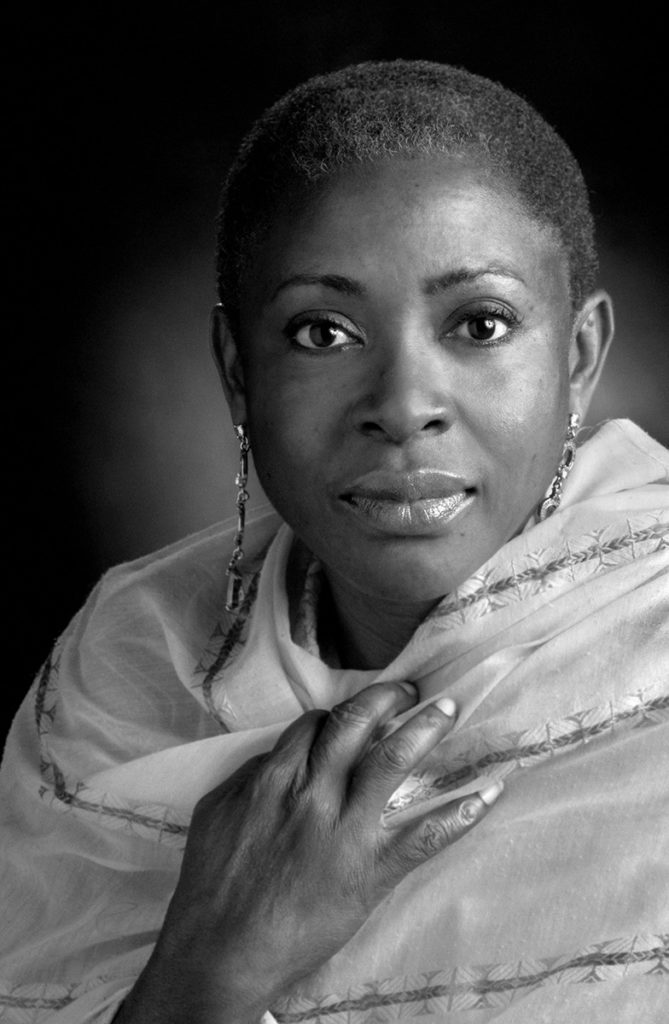
BlackTalk Podcast · Episode 10 – Afua Cooper
Episode Nine:
Yona Knight-Wisdom
Yona Knight-Wisdom is an Olympian and rising Jamaican athlete in the fiercely competitive, and technical sport of diving. Beginning his diving journey in 2004 at the City of Leeds Diving Club, he rose quickly through the ranks achieving a top 5 finish at the 2014 Commonwealth Games. Following this, he continued to make appearances on the world stage competing at the 2015 World Aquatics Championship, the 2016 FINA Diving World Cup, the 2016 Olympic Games in Rio, where he became the first male diver in history to represent Jamaica at the Olympic games, and the 2020 Olympic Games in Tokyo, where he competed against the best divers in the world once again.
We talk about:
Not being a natural body type fit for diving, making adjustments to accommodate how he thinks about nutrition, and why he chose to dive for Jamaica.
His Olympic dreams, the internal pressures and emotions of qualifying for the first time, and achieving the dream of his nine-year-old self.
Being a mentor to young divers, including to a promising young Canadian diver Yohan Eskrick-Parkinson, training together, and how Yohan might join Yona in representing Jamaica.
Meeting celebrities from across the spectrum including royalty, politicians, actors, sporting superstars, and why Usain Bolt stands out as the most influential.
Yona’s eight-step performance principles and advice for future athletes, and his big plans to grow the resources in Jamaica to support future athletic talent.
Finally, a special thank you to someone who helped Yona succeed – British-Jamaican businessman Levi Roots – and how Yona hopes to reciprocate this gift by paying it forward.
“In my head, that was the only thing that was happening… I would qualify for the Olympics. That was the only outcome.” – Yona Knight-Wisdom
Keywords: Olympian, diving, athlete, Team Jamaica
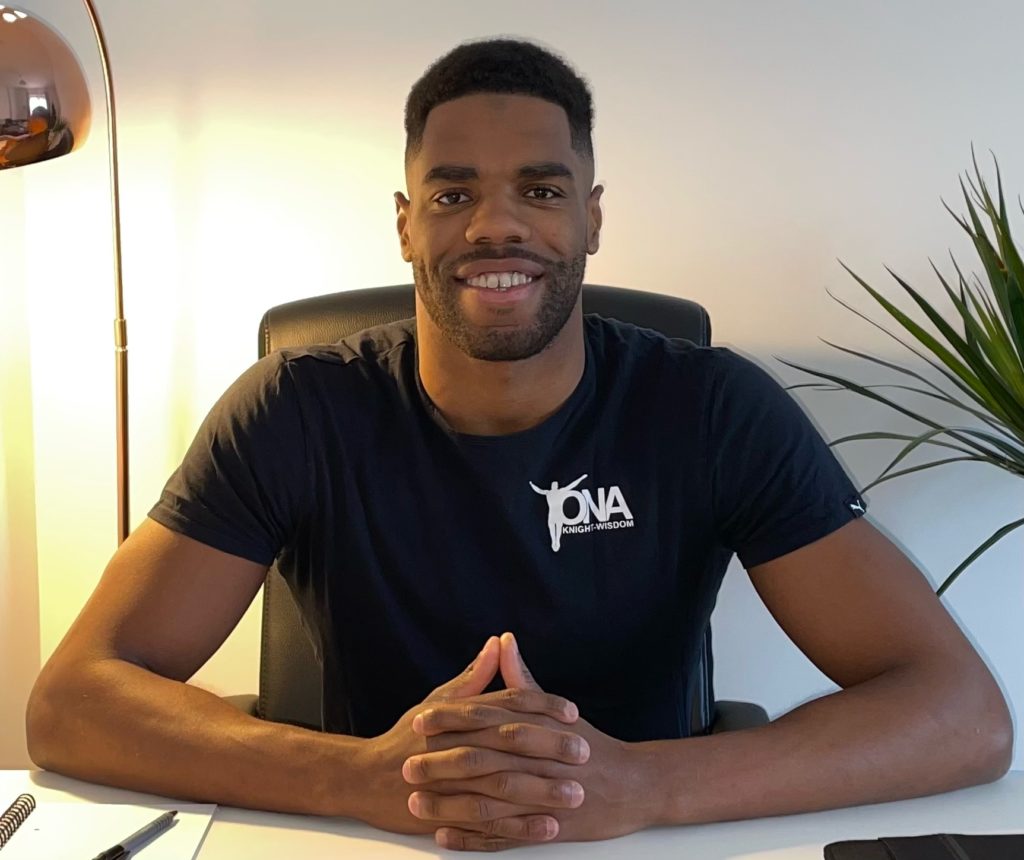
BlackTalk Podcast · Episode 09 – Yona Knight-Wisdom
Episode Eight:
Miriam Zinter
Miriam Zinter is a Black woman who can easily be mistaken as a White woman. As a result of her appearance, she’s had a unique experience in observing racist attitudes. Miriam began her career as a community organizer, following this, she served as the Executive Director of a not-for-profit neighborhood organization. Recently, she served as the senior housing programmer for the City of Rochester, New York, and she now works in the housing finance sector as a Mortgage Officer.
We talk about:
Challenges her father faced in the 1960s securing access to educational opportunities and how he rose through the ranks at GE despite racist attitudes.
Attending all-white schools, showing up as a blue-eyed, light skinned Black girl, getting the “talk” from her parents and advice to “be like Dr. King.”
Institutional racism’s generational impacts on access to financing, insurance and housing and how her parents saved up to pay cash for their first home which led to upward mobility.
Navigating the world as a White presenting Black woman, experiencing racism from neighbors and the moment she realized she had White privilege.
The importance of Black Lives Matter, why she chose to share her personal story in an article that went viral, and how it connected to others who resonated with her words.
How racist barriers and power imbalances affect all of us and hold society back.
“We were one out of how many? How many other Black families tried to get a house, tried to invest in equity, tried to grow their wealth and at every turn were denied?” – Miriam Zinter
Keywords: anti-black racism, black achievement, housing, segregation, financing, inequality
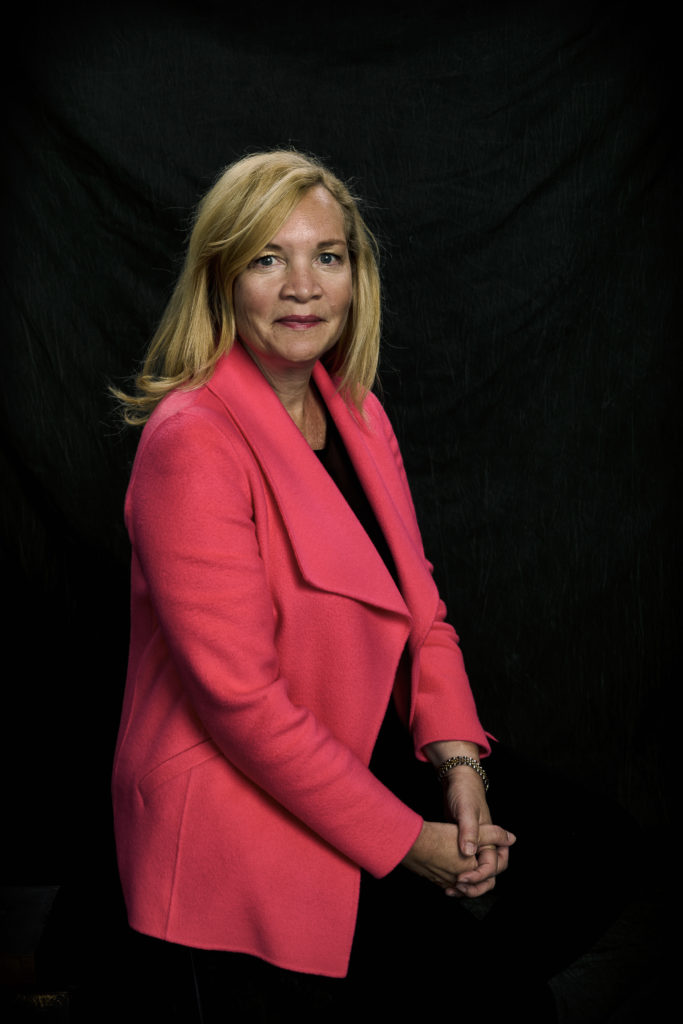
BlackTalk Podcast · Episode 08 – Miriam – Zinter
Episode Seven:
Dr. Tony Fields
Dr. Tony Fields is one of Canada’s leading figures in oncology, and now serves as MacEwan University’s first Chancellor. He is the former president of the National Cancer Institute of Canada, and he has served on the boards of the Canadian Cancer Society, the Canadian Breast Cancer Research Alliance, the Canadian Oncology Society, and the Canadian Association of Provincial Cancer Agencies. Dr. Fields was awarded an Order of Canada for his contributions to oncology, and he was named one of Alberta’s top 100 Physicians of the Century.
We talk about:
Early life, growing up in Barbados and studying at Harrison College.
Moving to Canada, his first job in Edmonton and the path towards becoming a doctor at a school “for Albertans.”
What real confidence looks like, and his advice on being self-assured.
How working with cancer patients helps Dr. Fields remain hopeful, even in the face of great uncertainty.
Reflections on cancer, why as a society we need “cancer control,” and why cancer is preventable to a larger degree than we may think.
Thoughts on his current role as the first Chancellor of MacEwan University, being a role model for students and some specific advice for young people who want to pursue a career in medicine.
Keywords: black achievement, doctor, oncology, cancer, Chancellor, MacEwan University, medical school.
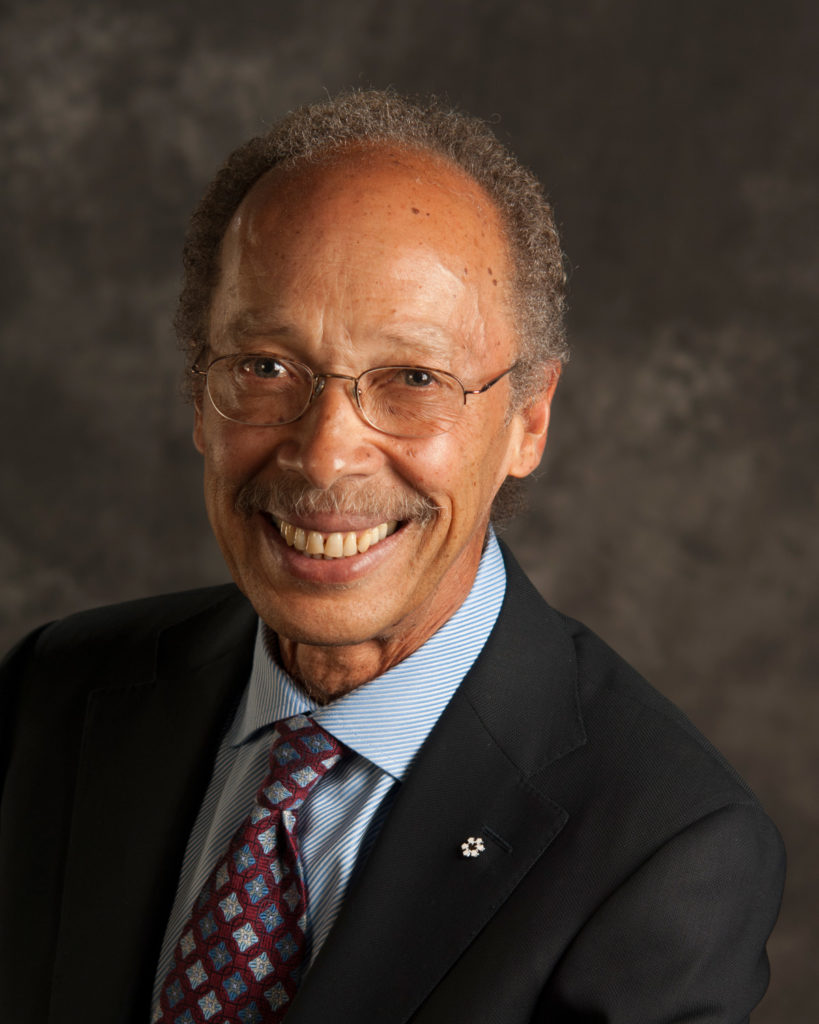
BlackTalk Podcast · Episode 07 – Dr. Tony Fields
Episode Six:
Olunike Adeliyi
BlackTALK launches season two with actress Olunike Adeliyi, star of CBC’s The Porter. In this candid conversation we learn about Olunike’s backstory, and how it informed her approach to her work. From her debut in theater, to her premier roles on the popular Canadian crime drama Flashpoint, and the historically significant CBC drama The Porter, we trace the path that led to her current success and the values that informed the choices she’s made to proudly tell her own story.
We talk about:
The importance of names and why she’s proud to be called Olunike.
Getting started in the acting world and some early career advice from Denzel Washington.
Her experiences attending the American Academy of Dramatic Arts as a Black woman.
Bringing to life the charter of Queenie in The Porter, co-creating the role with the creative team and not taking “no” for an answer.
The importance of being your own number one fan and why she thinks good lighting is super important.
Thoughts on moving forward with racial equity in Canada and feeling empowered to move forward in a sense of progression.
“Know where you actually came from….don’t let somebody write the narrative for you.” – Olunike Adeliyi.
Keywords: anti-black racism, black achievement, actress, The Porters, CBC
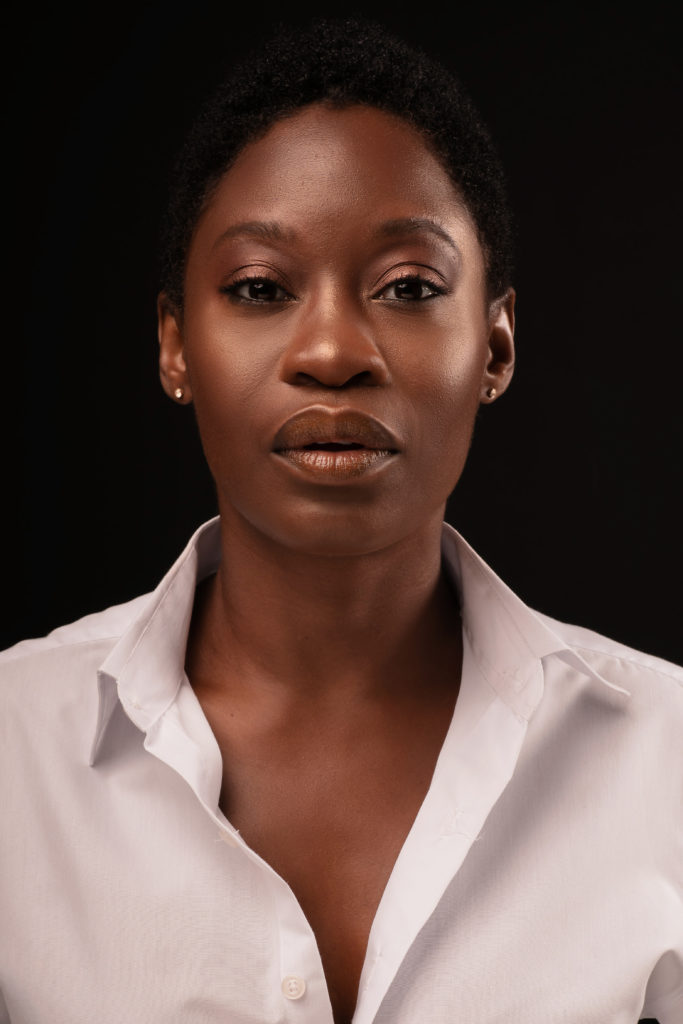
Episode Five:
Dr. Ivelaw Griffith
On this episode of Blacktalk, Dr. Ivelaw Griffith joins us to talk about his distinguished career including his time as the President of Fort Valley State University. Dr. Griffith shares accounts of how racism has impacted him personally throughout his career and life. He discusses the systemic, structural racism that plays out in universities, the “celebration of whiteness” in our bigger culture, and the role of funding in holding the status quo in place. Dr. Griffith sheds light on how society as a whole needs to change in order to reshape the paradigm.
We talk about:
His transition from Guyana to New York, being put into the “mediocrity zone” by others and the difference between Guyana and Ghana.
Finding the resources in academia to make real change.
Thoughts on the historical, economic connections between slavery and the modern day prison system in the United States and how the system is “rigged” against Black and Brown people.
How versions of this reality play out globally.
Why systems of funding for education, healthcare, criminal justice and more need to change in order for society to reshape priorities.
Why he thinks “cancel culture” is a fad and is ultimately insufficient to address the real issues. Dr. Griffith talks about how wealth can be used over time to “white wash and play down” racist actions taken by historical leaders.
Ivelaw shares what keeps him going, the role of music in his life, and a message for young people to “keep on keeping on”.
Keywords: anti-black racism, black achievement, criminal justice, policing, incarceration, structural racism, systemic racism, funding, cancel culture, statues, white-washing wealth, faith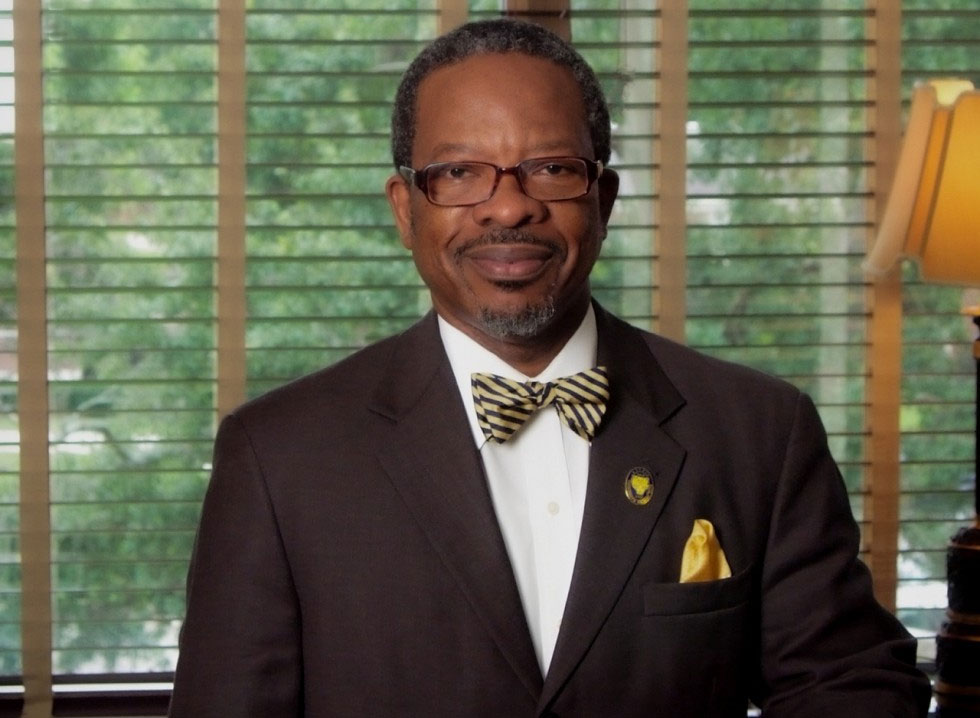
Episode Four:
Celina Caesar-Chavannes
On this episode of Blacktalk, we welcome speaker, author, academic and former MP, Celina Caesar-Chavannes. Celina speaks candidly about her early life and struggles with mental health issues, which she documents in her memoir, Can You Hear Me Now? Celina was the sole Black female MP in a predominantly white and male government. She shares how and why she entered and exited politics, including her clashes with Justin Trudeau. She talks about why she is so passionate about the work she is doing now as Senior Advisor of Equity, Diversity, Inclusion Initiatives and Adjunct Lecturer at Queen’s University and as an advocate for mental health.
We talk about:
Her Caribbean roots in Grenada and early family influences, especially her grandmother, Mrs. Caesar, and her mother, who Celina calls “the iron that sharpened me”.
How a viral blog post about a mental health crisis led to writing a book, and how that was a cathartic experience that helped her process her painful experiences.
Her early rebellious years in university and why she didn’t enjoy her undergraduate experience.
Celina’s advice to young people who want to enter politics, and her own desire to create equity in dealing with healthcare matters led to her decision to enter politics.
The juggling act of running a business, leading a national research study, managing a busy family life, doing an MBA and running for office – all at the same time!
Celina’s time in Ottawa, being marginalized, her interactions with other MPs as well as the Prime Minister. How she pushed for change on the promise of “sunny ways” but faced resistance and ultimately “got cut” by trying to break the glass ceiling.
The infamous Andrew Chang interview.
Advice for young Black women who want to make a change in society or enter politics.
Keywords: anti-black racism, black achievement, politics, women in politics, member of parliament, feminism, sexism, equity, diversity, inclusion, EDI, mental health, MBA
Episode Three:
Dr. Bukola Salami
On this episode of Blacktalk our guest is University of Alberta associate professor in the faculty of nursing, Dr. Bukola Salami. Dr. Salami shares the impact racism had on her parents’ careers and in her own career where she has been constantly underestimated. She talks about the importance of mentoring and why she is investing her time as a mentor to young Black students. We also cover the health crisis in the Black community, how COVID-19 has exacerbated health inequities, mistrust in public health institutions and the importance of race based health data.
We talk about:
Bukola’s experience in coming to Canada from Nigeria as a sixteen year old, her early expectations of Canada vs the realities of Canadian life.
Feeling fortunate to have had early mentorship as a student and how Dr. Salami is now providing mentorship to young Black students.
Experiences with polite racism, being underestimated and seeing her parents facing discrimination for not having Canadian expereince, despite being educated in Canada.
“The Cappuccino effect” in society, being Black underneath and white on top, and the structural racism that holds this in place. How COVID-19 has been disproportionately experienced in racialized communities.
Bukola’s thoughts on what can be done at the University of Alberta to “lift all the people up” to level the playing field and her advice for young Black scholars.
Keywords: anti-black racism, black achievement, ethnic penalties, polite racism, structural racism, mentorship, the Cappuccino effect, nursing, public health, COVID-19
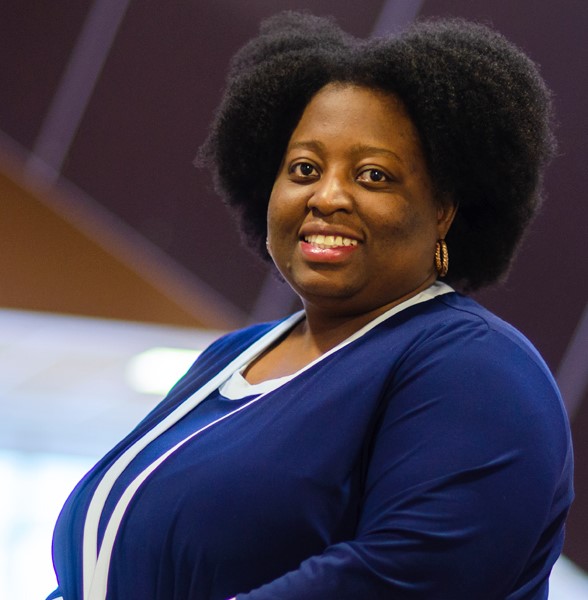
Episode Two:
Dr. Cecil Foster
On this episode of Blacktalk, we’re joined by academic, author and journalist, Dr. Cecil Foster. Dr. Foster weaves his own story of arriving in Canada from Barbados in the 1960s into the larger historical patterns of racism that Black people experience immigrating to Canada. He shares the struggle of being isolated as the only Black journalist in the newsroom and being held back from opportunities to advance. In academia, he faced similar racist behaviour, as both a student and later as a young Black academic. Dr. Foster continues to advocate for a multicultural society and to educate in academia and beyond.
We talk about:
Facing racism growing up in Barbados and reflections on Cecil’s first novel, No Man in the House, and how this type of structural racism could easily have taken place in Canada today.
Cecil shares his past experience as a black student and now, as a black scholar. He explains what has changed and what remains the same. He talks about facing “the practical side of racism” as a young journalist.
Having no mentors as a young scholar, and how that has led him to see the importance of being a mentor for his own students.
Despite being one of the top business journalists in Canada and a published author, Cecil faced barriers in trying to land his next role in journalism. He shares how that painful experience led him towards academia.
Why we don’t need to reinvent the wheel, but we do need to embrace “political will” to deal with racism.
Keywords: anti-black racism, black achievement, journalism, structural racism, mentorship, multiculturalism
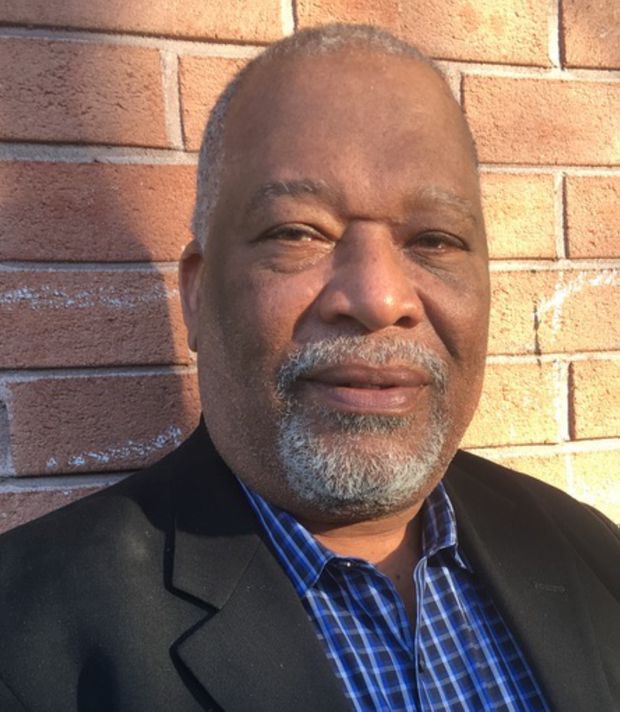
Episode One:
Sir Hilary Beckles
On this episode of Blacktalk, we explore the historical economic links of slavery with Vice Chancellor of The University of the West Indies and global activist, Sir Hilary Beckles. He shares a disturbingly frank look at the British colonial practices of the Black slave code. These practices were institutionalized and legitimized in order to commoditize Black people as labour and assets. Sir Hilary explains how the economic and societal underpinnings of this new island society of Barbados were exported throughout the Americas. As we find ourselves at this “George Floyd moment”, Sir Hilary illustrates how modern experiences of racism are the appalling legacy of these early colonial practices and institutions.
We talk about
The racism behind the British Emancipations Act.
Reparations, cleaning up the mess left by colonialism and repaying the debt from 200 years of free labour from 20 million people.
Why we need a comprehensive, decades long reparations program of serious economic enfranchisement to compensate for the magnitude and severity of slavery and racism inflicted on Black communities.
The health implications of historical inequities and the Caribbean’s triple C challenge of chronic disease, climate change and COVID-19.
The bloody legacy of the Rhodes Scholarship, British imperialism and Sir Hilary’s thoughts on his personal connection to knighthood.
Keywords: anti-black racism, black achievement, reparations, Black slave code, slavery, colonialism, Barbados, Caribbean
